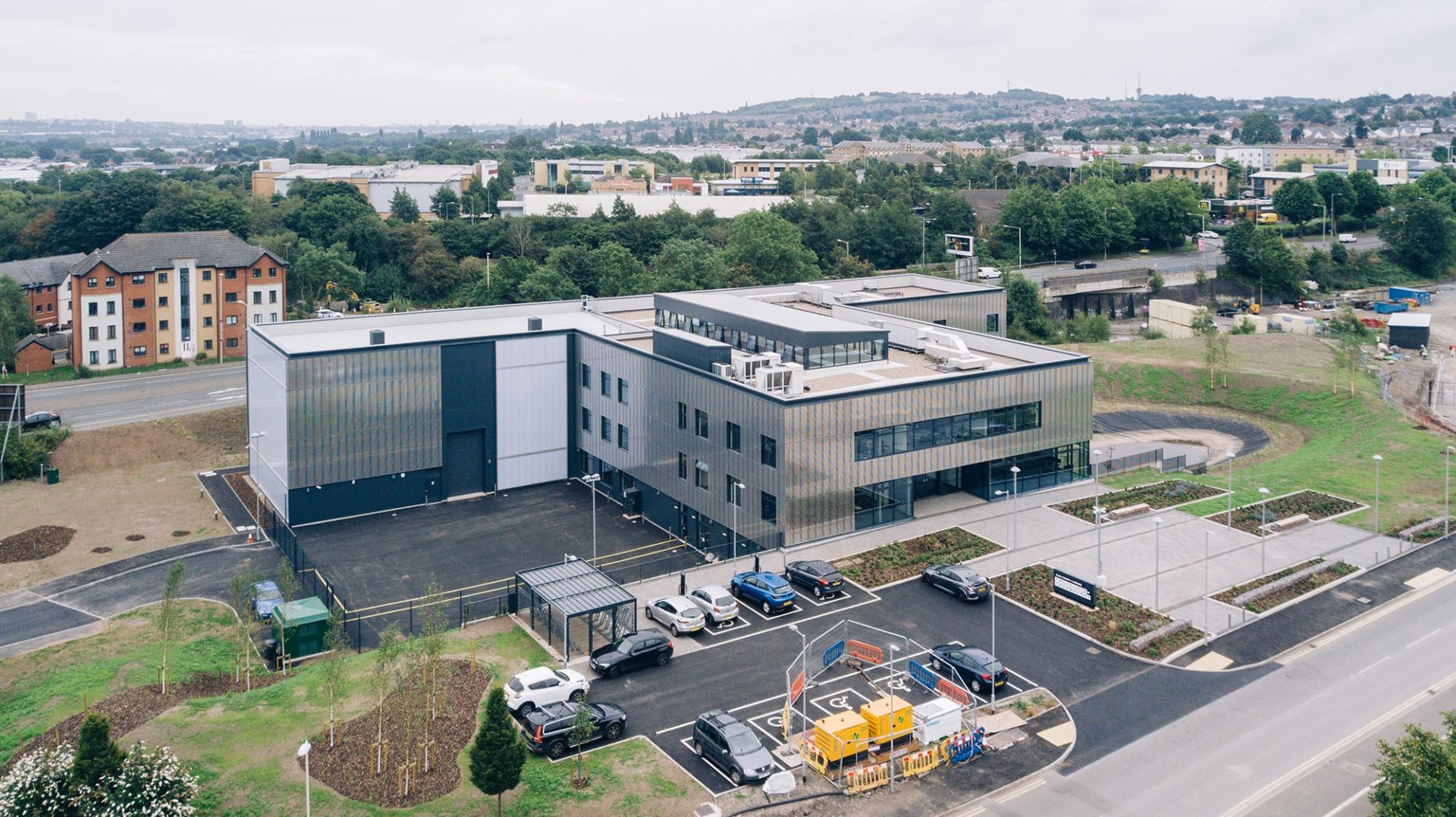
The Black Country & Marches Institute of Technology in Dudley has become just the third project in the UK to be delivered by an alliance of construction businesses under the Integrated Project Insurance (IPI) model.
The use of the model was part of the government’s trial strategy for delivering new methods of construction procurement – with Advance II, the first project under the trial, also delivered on behalf of Dudley College of Technology in 2017.
The £21.8m Institute of Technology has been delivered by a project team of alliance members: client Dudley College of Technology; independent facilitator IPInitiatives; primary constructor Speller Metcalfe; MEP constructor Derry Building Services; structure and civils firm GCA Consulting; MEP engineer Cundall; architect Cullinan Studio; and digital coordinator Fulcro.
The three-storey, 4,750m2 Institute of Technology on Castle Hill is next to the new Metro stop, the Very Light Rail Innovation Centre and the Black Country Living Museum, and provides technical classrooms, IT facilities, break out and communal spaces, catering facilities and a triple height workshop space.
The alliance members adopted a low-carbon approach that focused on achieving the ‘best of’ sustainable design, by incorporating elements from a range of accreditations such as BREEAM and Passivhaus, which were specifically designed to suit the project rather than the project attempting to fit each standard. The scheme has also targeted a 20% reduction in carbon emissions in comparison to Advance II.
Louise Lado-Byrnes, director at IPInitiatives, said: “The principles of IPI enable the project team to form an alliance that consists of the client, designers, constructors and suppliers. These members are brought together before the design is even considered, which ensures that all interests of the team are aligned from the outset.
“By working ‘as one’ rather than as individual entities, and supported by a unique project insurance, this third trial of the model has proven overwhelmingly to reduce project risk, increase profit, create a ‘no blame, no claim’ culture and freedom for decisions to be made on a best-for-project basis, rather than best for the individuals involved.”
The official opening for the college is scheduled to take place this autumn, with more than 2,000 learners set to be taught at the institute by 2025.











